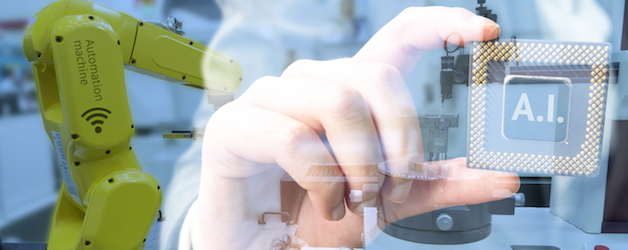
Imagine asking for help from your hospital bed, and a robot shows up. Or imagine calling a service with a health related question and it’s answered by a computer. Not so far-fetched anymore, is it?
While robots and computers might never completely take over doctors and nurses positions, machines and AI are quickly transforming the healthcare industry. They are changing the landscape of what we consider to be the best way to stay healthy for the long term. They can improve diagnostics, predict outcomes, and help detect problems that are too small or too detailed for the average person to determine.
The biggest shifts we’ll see in the coming years are really focused in three areas.
Patient Engagement
Doctors increasingly are having to meet with patients for shorter periods of time, evaluate the situation based on small amounts of data, and attempt to catch things their patients may or may not understand they should disclose. This is where AI can excel. What this means for IT is an increasing need for mobile and wireless support, as well as application development that can integrate the Internet of Things into everything we do. Things like iWatches and FitBits are only the starting point. We’ll quickly see this in everything we use: blood pressure cuffs, scales, refrigerators, toilets, virtually every part of our daily lives can incorporate AI and give us a better picture of where our health stands every day.
Analytics
We all know that the earlier something is detected, the easier it is to treat, the better the outcome. The goal of AI in the future is to assist in making discoveries that are impossible with the human mind alone. AI can push the boundaries of taking in data and using it to predict and analyze outcomes. We’re seeing it today in imagery, because no matter how advanced monitors become, at some point the human eye can’t pick up differences. AI can distinguish patterns and anomalies that humans could never detect on their own. That means we’ll start seeing this new kind of diagnostics integrated into discovery all over the healthcare industry - from the ER to laboratories, to radiology, and more.
Genetics
We all understand that early detection means more successful outcomes. What if we could detect problems before they became a problem? That’s where AI comes to play in the genetics field. AI can help identify potential diseases and help modify DNA to cure those diseases before they occur. It’s already being performed and investigated in a variety of ways: restore muscle strength or skin transplantation, for example.
Success in the future will depend on staying in listening mode for opportunities to arise and ways to combat things that hold us back. The world is filled with opportunity. The only question now is how far we’re willing to go to grab it.


